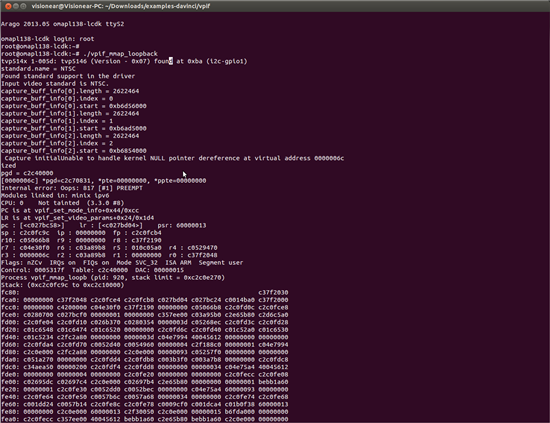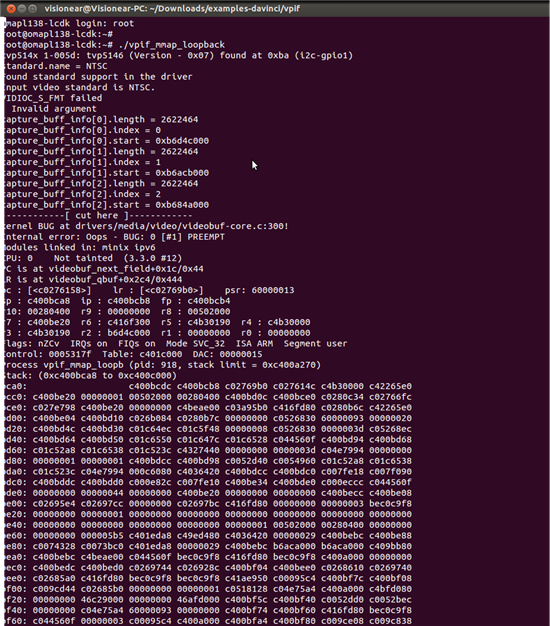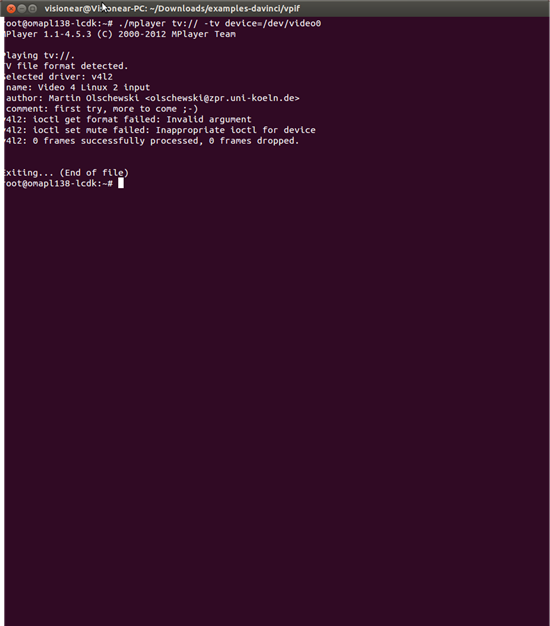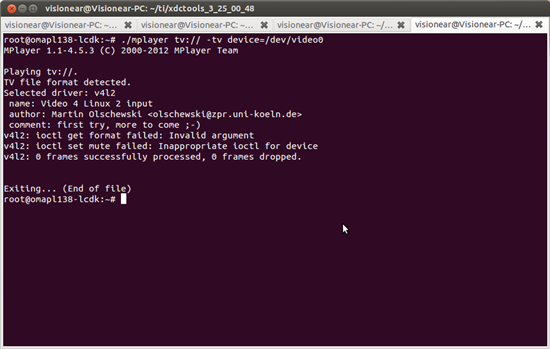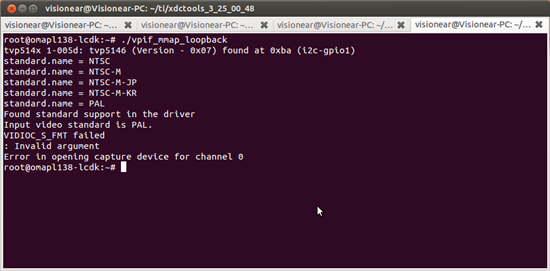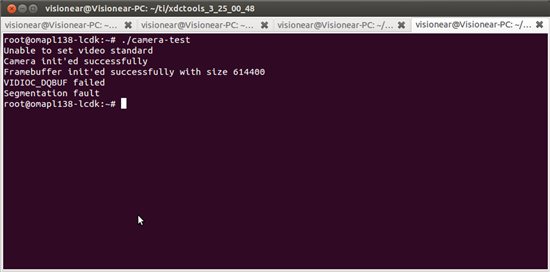I'm trying to get the composite input of the LCDK board working. Firstly, I follow this post http://e2e.ti.com/support/dsp/omap_applications_processors/f/42/t/339153.aspx. I have used the config file given in the bottom of that post (0763.board-omapl138-lcdk.c, 0028.dot_config_lcdk.txt). According to that post, these config files are for the DaVinci-PSP-SDK-03.22.00.06. However I have succesfully used it for the MCSDK. Now I have /dev/video0 and /dev/video1 show up and my boot log is identical to what given in the last comment in that post.
I've tested with loopback application given in this link (http://processors.wiki.ti.com/index.php/Demonstration_of_VPIF_raw_capture_using_MT9T031_sensor_on_AM18X/DA850/OMAP-L138_running_Linux#Setup) and this is what I have thus far
I have add the following code into /driver/video/davincifb.c to make the code compile
/* see : http://gumstix.8.x6.nabble.com/IO-ADDRESS-definition-missing-in-ti-codec-engine-build-td666095.html */
#define IO_OFFSET 0x01000000 /* Virtual IO = 0xfefb0000 */
#define IO_ADDRESS(x) ((x) - IO_OFFSET)
and I comment out line 301 of file /driver/media/video/videobuf-core.c
//BUG_ON(V4L2_FIELD_ANY == field);
Thanks you
Nuntipat



